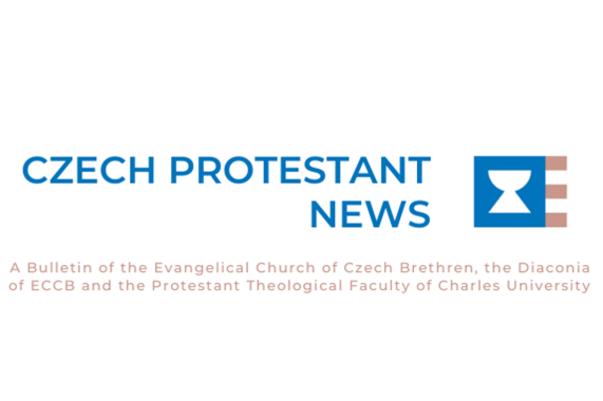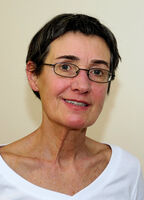Ecumenical Bulletin 53 – Summer 2021
Editorial
Dear Friends, dear Readers,
In the Easter edition of my editorial, I was unable to avoid mentioning the topic of COVID-19. In the spring months, the statistics, in our country at least, were not looking good at all. Since then, however, the situation has improved significantly and from the information I’ve had access to, this seems to be the case in most of Europe. We have never experienced a „plague“ of this sort before, so let us hope we have also learned a thing or two from this unusual situation. And we may only hope that last year’s scenario will not repeat itself after the summer vacation.
Ecumenical Bulletin 53 – Summer 2021
But what about the other „plague“ – the one that is taking place in Belarus? Nothing has changed there since Easter and the scenario remains one and the same. There is hardly anything we can do to help these people.
We deal with both of these topics in this edition of the Bulletin: you can read about a moment of silence held for the victims of COVID-19, and also learn about two church services dedicated to the people of Belarus.
I would also like to draw your attention to the articles concerning the LGBT community. Our church cares about the community and has so far organised three discussions, which sparked quite a lot of interest.
Let us hold on to the Hope provided by our Lord and may His peace be with us all.
Wishing you all the best on behalf of the whole Editorial Board
Jana Plíšková
EVANGELICAL CHURCH OF CZECH BRETHREN (ECCB)
 P. O. Box 466, Jungmannova 9,
P. O. Box 466, Jungmannova 9,
CZ 111 21 Praha 1, Czech Republic
Tel: (+ 420) 224 999 215(216); Fax: (+ 420) 224 999 219
E-mail: ekumena@e-cirkev.cz
Web page: www.e-cirkev.cz
The foundations of the Evangelical Church of Czech Brethren stem from the Hussite church (1431–1620) and the Unity of the Brethren (1457–1620). The Evangelical Church of Czech Brethren (ECCB) was established in 1918, when the Lutheran and Calvinist wings of the local protestant creed were united in one. Their existence, however, had not been legal until Joseph II issued his Patent of Toleration in 1781, following a long and tough anti-reformation campaign that began in 1620. Even after issuing the Patent of Toleration, Protestants still had to face many restrictions, which would only be lifted following the Protestant Patent of 1861.
At the time of its establishment, the ECCB had 250,000 members, the number increased to 325,000 in 1938. Today, the church is divided into 14 seniorates and has a total of approximately 250 congregations and 100,000 members. The church is headed by a six-member Synodal Council, elected for a six-year period, represented by the Synodal Senior and Synodal Curator.
A Moment of Silence
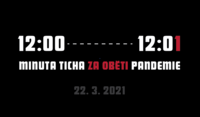 On Thursday, 4 March, the Synodal Council of the ECCB sent the following message to hospitals and social service facilities across the Czech Republic:
On Thursday, 4 March, the Synodal Council of the ECCB sent the following message to hospitals and social service facilities across the Czech Republic:
To doctors, nurses, social workers, carers, medical orderlies and other healthcare and social service facility employees:
„Dear all whom this concerns,
During these difficult times of the ongoing pandemic, you bear a significant portion of the burden that we are all dealing with in one way or another. You bring many sacrifices serving in the first line, in the face of all the suffering. More than ever before, you are forced to cope with the fact your patients are dying, and that you have access to limited resources, both material and human. We want to assure you that we all share this burden. We know you are doing all you can, in fact you are doing more than could ever be required or expected of you. Often, however, it is beyond human capability to prevent a death from happening. And it is exceptionally hard to accept our limitations and our helplessness.
You are in our thoughts, with understanding, admiration, love. As individuals and as a community of churches, we pray for the healing of the sick, for relief for those that are suffering and dying, we pray that their loved ones have hope and patience, and we pray for hope and strength for you, the doctors, the nurses, the carers.
May you find support in your friends, your superiors, your neighbours. May you find efficient specialised help – supervisory, psychotherapeutic, and spiritual.
Our hospital chaplains and ministers are not only here to serve those who believe in God. Anyone can turn to them when seeking understanding, support, encouragement. We are quite certain that representatives of other confessions feel the same way about this. God bless you all.“
On Monday, 22 March 2021 at noon, life in the Czech Republic slowed down for one minute. Church bells rang in many places. The Czech Republic commemorated the victims of the COVID-19 pandemic with a moment of silence.
In the course of the past twelve months, almost 25,000 thousand of our citizens died of causes related to the COVID-19 pandemic. It is highly likely that many more victims are missing from the statistics. And it is certain that the death toll is not final yet.
„We are convinced that sharing our grief as well as our memories of the victims will enable our society to make better and more dignified first steps forward into the future that awaits us after the pandemic is over. The victims should always be remembered,“ explained the organisers of the society-wide initiative. „The moments of grief are not intended for trying to find someone to blame or for promoting any partial interests. We cannot erase grief and death in the times of the pandemic from our collective memory. The moment of silence for the victims of the pandemic is supposed to be an act of solidarity and respect for the victims and their bereaved families, but it should also be a way to show our gratitude for life, as we now see its cost more clearly than ever before.“
Jiří Hofman
Support for Those Facing Oppression in Belarus
In early 2021, the ECCB’s Synodal Council called for a show of support for those that are facing oppression in Belarus:
 „It is with utmost concern that we have been watching the grave situation in Belarus. The protests against the dictatorship-like regime of President Lukashenko have been going on for many months. Although the results of the presidential election that took place last August were clearly falsified, the regime is not willing to give in. The protesters face never-ending oppression: there are credible eyewitnesses to hundreds of cases of assaults, torture and rape. May our own difficult situation, caused by the pandemic, not hinder our ability to see the many places in the world where people face injustice, persecution, unfreedom. We would like to draw public attention to the unfortunate situation in Belarus also on the EU level and through international ecumenical organisations. We are looking for ways to provide financial support for specific people in need,“ the ECCB’s leadership stated in January 2021.
„It is with utmost concern that we have been watching the grave situation in Belarus. The protests against the dictatorship-like regime of President Lukashenko have been going on for many months. Although the results of the presidential election that took place last August were clearly falsified, the regime is not willing to give in. The protesters face never-ending oppression: there are credible eyewitnesses to hundreds of cases of assaults, torture and rape. May our own difficult situation, caused by the pandemic, not hinder our ability to see the many places in the world where people face injustice, persecution, unfreedom. We would like to draw public attention to the unfortunate situation in Belarus also on the EU level and through international ecumenical organisations. We are looking for ways to provide financial support for specific people in need,“ the ECCB’s leadership stated in January 2021.
„We are sending out a message to the people of Belarus that are in opposition to the violent regime: We are aware of your activities, you are on our minds, we talk about you and we pray for you. We are doing this publicly, so that you may be aware of our activities, so that our co-citizens will know, so that our government will know and so that people around the world, whoever might hear our voice, will also be aware,“ said Deputy Synodal Senior Pavel Pokorný, who also pointed out that prayer is the freest thinkable space.
The ECCB is keeping in touch with the Belarussian community in the Czech Republic and is monitoring the violent repressions against the protesters in Belarus thorough the Human Rights Community and with the help of Mikuláš Vymětal, minister for minorities.
On the last Thursday in March, the second Belarussian ecumenical service took place in Prague’s Salvator church. The service took place on the day of the 103rd anniversary of Belarus’ Declaration of Independence.
Jiří Hofman
New Synodal Council Elected
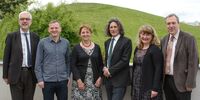 On the 21st of May 2021, the Evangelical Church of Czech Brethren elected its new leaders during the session of the Synod in Prague. The new Synodal Council will consist of ministers Pavel Pokorný (the Synodal Senior), Ondřej Titěra and Roman Mazur. The laymen in the council will comprise Jiří Schneider (the Synodal Curator), Jana Šarounová and Simona Kopecká. Their term in office begins on the 22nd of November 2021.
On the 21st of May 2021, the Evangelical Church of Czech Brethren elected its new leaders during the session of the Synod in Prague. The new Synodal Council will consist of ministers Pavel Pokorný (the Synodal Senior), Ondřej Titěra and Roman Mazur. The laymen in the council will comprise Jiří Schneider (the Synodal Curator), Jana Šarounová and Simona Kopecká. Their term in office begins on the 22nd of November 2021.
Jiří Hofman
The debate on marriage for all: late, but still
 The commission for the preparation of the dialogue with the LGBTQ+ community prepared three online discussions in the form of a moderated panel interview. They had a relatively clear goal: to open a debate within our church about attitudes to marriage for all. The number of viewers shows that there is certain interest in the topic among evangelicals.
The commission for the preparation of the dialogue with the LGBTQ+ community prepared three online discussions in the form of a moderated panel interview. They had a relatively clear goal: to open a debate within our church about attitudes to marriage for all. The number of viewers shows that there is certain interest in the topic among evangelicals.
The first of the discussions took place on Wednesday, February 10th, and was called The Biblical, Theological, Ethical, and Psychological Aspects of Homosexuality. The guests were psychotherapist Dagmar Křížková, ethicist Jindřich Halama and biblist Martin Prudký, the discussion was moderated by the church-wide pastor for minorities Mikuláš Vymětal.
The discussion focused mainly on the document titled The Issue of Homosexual Relations, which was published by the church in 2006 with reference to the 1st session of the 30th Synod (May 2004). All three guests took part in its preparation and each had to comment on the document now, after 15 years. They share an understanding of the whole issue – homosexuality is not a disease and it is not an insurmountable problem for Christianity.
Martin Prudký noted at the outset that all texts of the Old and New Testaments, which are described as a declaration that homosexuality is abominable, must be viewed through the context of the time. The important thing is that the Bible itself does not know homosexual orientation, but only homosexual behaviour, which in almost all stories is associated with some form of violence and dominance.
According to Jindřich Halama, homosexuality is not the number one issue in the Christian faith, but rather a pastoral issue.
Dagmar Křížková offered a sexuological/medical perspective. Sexual orientation is innate, it cannot be changed by medical methods. Any attempts at treatment were unsuccessful; the World Health Organization removed homosexuality from the list of mental disorders as early as 1990.
The second of the series of discussions was held on Wednesday, February 24th, and was called How Do Lesbians and Gays Live in the Church and in Czech Society. This time, the topic focused directly on the stories of specific people.
The invitation was accepted by the Pospíšil couple, who are parents of a young lesbian woman, as well as two members of the Christian LGBT community, Zdeněk Turek, a theatre actor and assistant preacher of the ECCB, and Veronika Dočkalová, the chairwoman of the Logos association. All guests are active members of one of the Czech Brethren Evangelical Churches. An exception was Sister Dočkalová, who is of the Roman Catholic faith. The debate was again moderated by Mikuláš Vymětal, a church-wide pastor for minorities.
Right at the beginning, the discussion turned to the concept of coming out, i.e., the moment when a person publicly declares their different sexual orientation. The Pospíšil couple brought an interesting perspective since they experienced the coming out from the other side, that is, as its recipients from their daughter's side. "In retrospect, our daughter's message about her sexual orientation brought relief, because the things we already knew were made a very clear fact by that statement," said Lenka Pospíšilová.
Another significant thematic block was the debate on the approach to people with a homosexual orientation in the church. Veronika Dočkalová's testimony pointed to the often painful situation in the Roman Catholic Church: "As I was preparing for confirmation, I came across a wall of ecclesiastical law and catechism that clearly told me: You do not quite belong here." On the situation in the Catholic Church, she added: "If someone lives in a long-term relationship with a person of the same sex, they do not have access to the sacraments. I think it is a completely bizarre thing. If a person experiences some amorous moments with a person of the same sex and shows remorse for these acts in confession, they can receive all the sacraments. However, if it is found that the person in question lives with this person permanently, they are done in the eyes of the church, so to speak. From my point of view, this is a clear support for promiscuity at the expense of stable relations." On the other hand, Zdeněk Turek, who has experience with several churches, including the Church of the Brethren or the Seventh-day Adventist Church, encountered obstacles in the Protestant environment. He also encountered inconveniences and misunderstandings.
As the Pospíšil couple said, it is a great advantage that the Evangelical Church of Czech Brethren does not qualify evangelical homosexuality as a sin. In the context of Czech churches, however, this is a minority approach. The ecumenical and even international interest shows the need for dialogue in the church environment: in addition to lay people, the debate was followed by a number of clergy from various churches: for example, a Slovak Lutheran pastor spoke up, who, due to her open attitude towards LGBT people, faces the threat of a ban on clerical service in her church.
This discussion did not provide clear answers, but it must be added that that was intentional. The purpose was not to "define the field", but to give space for discussion and talk about things openly.
The third discussion took place on Wednesday, April 14th, 2021. The interview was moderated by Pavel Pokorný, Deputy Synod Senior of the Evangelical Church of Czech Brethren, and the following guests accepted the invitation: Ivan Eľko, Bishop General of the Evangelical Church in Slovakia, Benigna Carstens, leading member of the Unity of Brethren in Herrnhut, Germany, and Ondřej Stehlík, a pastor of the Presbyterian Church in New York.
The representatives of foreign churches spoke about their views and practices when it comes to homosexuality and about their experience with dialogue in the church and society as well as with the search for consensus.
Ema Pospisilova, Adela Rozborilova
DIACONIA OF THE ECCB
 Belgická 22, CZ 120 00 Praha 2, Czech Republic
Belgická 22, CZ 120 00 Praha 2, Czech Republic
Tel: (+ 420) 242 487 811 (812); Fax: (+420) 242 487 834
E-mail: info@diakonie.cz
Web page: www.diakonie.cz
The Diaconia of the Evangelical Church of Czech Brethren (ECCB) is a Christian non-profit organisation that offers help and support for living a dignified and full life despite age, illness, disability, isolation, difficult social situations or other forms of crisis situations that occur in life. The services of the ECCB’s Diaconia are based on the message of the Gospel about the Love of our Lord and the example that Jesus Christ has given us in serving others. In its centres and special educational facilities, the ECCB’s Diaconia offers social and educational services, healthcare, and ministry. It is the second largest non-governmental organisation providing social services in the Czech Republic.
From criticism to deeds. Why they decided to found Diaconia in Svitavy and build a dignified home for the elderly
 A story is told: Thirty years ago, when Diaconia resumed its activities, new schools and centres were created as if out of nowhere, thanks to the decisions and enthusiasm of the members of the Evangelical Church. It is different today, though not quite. Even in the 21st century, new Diaconia centres are being created out of scratch.
A story is told: Thirty years ago, when Diaconia resumed its activities, new schools and centres were created as if out of nowhere, thanks to the decisions and enthusiasm of the members of the Evangelical Church. It is different today, though not quite. Even in the 21st century, new Diaconia centres are being created out of scratch.
But in this case, it is not really out of scratch. Rather on a perfectly levelled building plot. Originally there used to be a derelict farm, which was later demolished. We are near Svitavy, in the Vendolí village. The place has a beautiful view of the local fields and forest. There is a grocery store next door. And if everything goes according to plan, a new community home for the elderly will be built here in a relatively short time. Under the leadership of Diaconia Svitavy - which is a complete novelty within the diaconal family. It came into existence a few years ago in the Svitavy church, the parish of which is the home of the Keller couple. Filip is an evangelical pastor, his wife Květa is a lawyer.
Together with others, they went to visit old and sick members of the local evangelical community. Often to hospitals for long-term patients, known by the Czech acronym LDN. When they exchanged their impressions of those places, they agreed that they did not feel good about such an environment – as if the human dignity was suffering there. Other members of the parish community saw it similarly. „But it never occurred to us that we could do something about it,“ says Květa Kellerová. „It was more of a shared criticism.“
Then there was the trip to Nosislav near Brno. The Brno Diaconia, together with the local evangelicals, built a small sheltered housing for the elderly, designed to imitate a common household. It is in sight of the parish office, approximately in the centre of the village. There is a vineyard nearby. Visitors from Svitavy were thrilled by the tour.
And when another of the many visits to the hospital for long-term patients in Svitavy took place in April 2018, where one of the members of the parish community lay only because there was no place for him in a more dignified environment, it was a turning point. „If they managed it in Nosislav, we can do it too,“ Květa Kellerová recalls the moment when the decision was made that the criticism must be followed by actions. Preparatory work has begun, which in today’s context means mainly negotiating and negotiating and negotiating… and negotiating.
„We didn't want it to be just a matter for a small group of enthusiasts,“ says Květa Kellerová. First, the idea of building a new home for the elderly needed to win church members. His board of directors (elders) clearly supported the proposal and commissioned a working team to negotiate. And the team went to the headquarters of Diaconia, equipped with a strong argument that the Pardubice region, where Svitavy is located, is the last of the Czech regions where the Diaconia does not operate, and now has a unique opportunity to change that. After considering various options, it was decided that the elderly home project in Vendolí would be backed directly by the diaconal headquarters.
And then the city was approached and then the region. Květa Kellerová, together with the work team, invited all social service providers in the city to present the intention of their new home. Especially to dispel the possible impression that a solo church project is being created, without regard to everyone else. The city was asked for support. Successfully.
It sounds simple and it can be described in a few lines. However, it stands for many, many hours of thinking, counting, preparations, patient explanations – a volume of work by which an individual would be easily overwhelmed. Team workers are needed. Květa Kellerová mentions one important name in this context – Jiří Brýdl. Emeritus Senator, Mayor of Svitavy, Regional Representative and current member of the elders of the Svitavy Evangelical Church. Thanks to his professional experience, he represents a credible authority in negotiations with various institutions. It is also thanks to him that good relations with the region could have been established, so that today the future home in Vendolí is already included in the so-called regional network of social service providers, which is extremely important for its future financing.
Architect Radim Oblouk was originally only supposed to consult on the design of the new home. However, the cooperation in the team made him so enthusiastic that today he is its busiest member. He designed the entire building based on the inspiration of elderly homes in Graz and Leoben. The most important is the interior layout of the home, which consists of open common living spaces. They can be accessed directly from the rooms for residents. This creates two „households“ with ten to eleven members.
When the proposal was completed, another round of negotiations took place directly in the village of Vendolí, which offered its land for the project; a senior home is in its long-term plan. However, the council looked at its final form with mixed feelings. „We knew it wouldn't be easy,“ says Květa Kellerová. In the neat village, they take pride in their houses with traditional gabled roofs. The architect tried to meet this, at least in part, but today's demands on buildings with energy efficiency expectations require different layouts. Some deputies were not happy about it. Another round of explanations and negotiations took place, which lasted from September to December last year. In the end, however, the project gained majority support in the council.
But it is far from done. The architect started to redesign the home to meet the passive standard, i.e., to have zero energy consumption. That is one of the conditions for obtaining a European subsidy, which would cover up to 85 % of construction costs. This means another complication – applying for a new building permit, among other things. And then having the construction completed by the end of 2023, which is a very tight deadline. „No matter how many times we discuss it over, it always turns out that it would be a terrible pity not to try it. Even though we take a considerable risk with this,“ says Květa Kellerová, who is ready to become the director of the future elderly home.
Adam Šůra
PROTESTANT THEOLOGICAL FACULTY OF CHARLES UNIVERSITY (PTF CU)
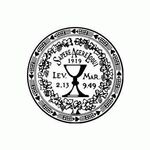 P. O. Box 529, Černá 9,
P. O. Box 529, Černá 9,
CZ 115 55 Praha 1, Czech Republic
Tel: (+ 420) 221 988 211; Fax: (+ 420) 221 988 215
E-mail: intl@etf.cuni.cz
Web page: http://web.etf.cuni.cz/ETFENG-1.html
The Protestant Theology Faculty of Charles University (PTF) is the successor of the Jan Hus Faculty (1919–1950) and the Comenius Faculty (1950–1990). In the year 1990 it was incorporated into Charles University. The administration of the Faculty is directed by a Dean and a board of Vice-Deans, elected for a four-year term of office. The Faculty offers study programmes at Bachelor's and Master's level in Protestant Theology, Diaconia (Pastoral and Social Work), and Ecumenical Studies, and at doctoral level in various theological fields. The faculty is ecumenically open to all. Pastors of the ECCB receive their theological education here.
Studying theology can shake one’s personal faith. An interview with the Vice-Dean of the Protestant Theological Faculty, Ladislav Beneš
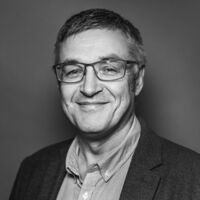 The Protestant Theological Faculty is one of three theological faculties that are part of the Charles University in Prague. In 2019, the faculty celebrated its first century of existence. We talked to the Vice-Dean for Academic Affairs, practical theologian and minister, Ladislav Beneš, about the faculty’s current position, about what it’s like to study there and how new students could be attracted.
The Protestant Theological Faculty is one of three theological faculties that are part of the Charles University in Prague. In 2019, the faculty celebrated its first century of existence. We talked to the Vice-Dean for Academic Affairs, practical theologian and minister, Ladislav Beneš, about the faculty’s current position, about what it’s like to study there and how new students could be attracted.
When I started studying at the faculty in the mid-nineties, the students came from diverse backgrounds, I would say most of them were not intending to become ministers. What is the situation like today?
The situation has changed a lot, in several ways. As far as Protestant Theology students are concerned, most of them really do come from a religious background and they are considering serving the church. They don’t only come from the ECCB, but practically from all the churches found in our country. And it’s not only young people who have just graduated from High School. We also have people who work as elders in their church and wish to deepen their knowledge, or work as assistant preachers. In addition, people seeking a “second career” sometimes come to study, wishing to do something more meaningful. The situation at the faculty has also significantly changed due to the fact that a study programme in the field of social work has been added. Those enrolled in it make up approximately two thirds of the faculty’s students and they are often people who are active in a church, but of course there are also people that are not part of any denomination. Learning from one another – not only between the individual specialisations, but also with regard to the various worldviews, is a real challenge and an exciting venture, which we see as a promising direction for the future.
The faculty is called „Protestant“, but both students and teachers alike are Christians of various denominations. In your view, what makes this faculty Protestant?
As mentioned above, the faculty’s students are not just declared Christians. We are part of a university and we are open to anybody who embraces the concept of a university. We are one of three theological faculties, so it would be the easiest to try to formulate what sets us apart. I suppose our faculty has the most Protestants. But I believe what really matters is the major, historical connection with Protestant churches, primarily the ECCB. And then, or perhaps first and foremost, it is our focus on cultivating Protestant theology with its foundation in critical research in the field of Biblical studies. It is also our task to explore the work and the impact of the Gospel in the past and now, questions of the Christian perspective in the fields of ethics, freedom and human rights in the context of other religions and worldviews. It is essential that all these studies are taking place freely, with a critical approach, but also with regard to the Protestant tradition; and yet at the same time, also in a basic ecumenical cooperation and in the spirit of openness to others and to the new things that are ahead of us. This type of critical reflection and openness is visible not only in the actual field of theology, but also in all our other subjects of study.
Working at the faculty has always involved building and maintaining living relations with foreign theological schools. Can you name an example of a successful cooperation with an institution abroad?
Perhaps I don’t have access to all the information, but I can’t think of a cooperation that would have turned out to be “unsuccessful”. There are some foreign schools that our students no longer go to, but in general, this is always a life-changing experience, both personally and career-wise. Our faculty has the advantage of being able to offer a wide range of contacts and possibilities, so almost anybody who is interested can study abroad, as long as they meet some very basic requirements. Among the most noteworthy institutions we have traditionally been cooperating with, I should mention Tübingen and Heidelberg in Germany, Oxford in the UK, or universities in Atlanta and Princeton, USA. In the field of social work, Scandinavian universities are the most attractive. What we are probably most proud of is our cooperation with the university in Tel Aviv, maintained by our department of Biblical studies. The students participate in archaeological research in the surroundings of Jerusalem. This is very hard work and excellent experience. It also brings new findings about life at the time of the kingdom of Judea. And again – basically any student can apply for this type of scholarship.
The faculty also offers English-language courses for foreign students. What is the best way to attract these students to choose the Protestant Theological Faculty?
I suppose you would need to ask the students. There is probably no need to point out that cross-border activities have been somewhat reduced in this past year. In spite of that, foreign students have been studying at our school, whether “from home”, or actually here in Prague. I am not entirely able to estimate the extent to which their interest in our faculty stems from its location, its attractive cultural, social and historical context, and to what extent it is based on our teachers who do a lot of work and have published many texts and books abroad. Many foreign researchers also come to our university and then tell their students good things about us. Usually, foreign students are interested in a specific topic or period from Czech history – either the era of the Reformation, or modern history; often, they are also intrigued by the mixing of cultures, a typical characteristic of Prague. Sometimes, they also come with a specific interest in Biblical studies, or other fields. We are now planning to offer the comprehensive theology study programme in English as a Bachelor’s degree as well. We have learned that there are many people around the world who have taken all sort of theology courses and trainings but would like to receive a more comprehensive education, including Biblical languages, systematic theology and history, which would enable them to graduate and continue working in their home countries.
Concerning the fields of study that focus on social work, who would you say these are mainly designated for, keeping in mind that similar specialisations can be found at other universities as well?
We offer a bachelor’s social and pastoral work study programme, in which basic theology accounts for approximately a quarter of the subjects. The theology should enhance the motivation for this type of work. It encourages students to seek a critical view of a person’s image, of their dignity, their rights. It should also help them deal with situations of poverty, sickness… They learn to theologically reflect our social reality, and to understand the uniqueness of a human life in their work. The follow-up Master’s programme named Community Crisis and Pastoral Work – Diaconal Work focuses on linking community and pastoral work, it places emphasis on the on comprehensive concepts of cooperation and relationships between people.
Are you considering widening the range of study programmes?
Not really at the present moment. Rather, we are thinking about strengthening certain specialisations. We have recently added a follow-up master’s programme called Theology – Spirituality – Ethics, which offers a deep insight into Christian thinking and ethics, including the ecumenical aspect. In a way, it is a continuation of the bachelor’s study programme named the Theology of Christian Traditions. This programme is suitable for those who have never dealt with theology before. Our idea was that it could mainly be designated for those who had previously studied other specialisations and wanted to broaden their knowledge in this field: people from the area of arts, media, history, economy or medical schools, and also “engaged laymen” from various churches. So far, however, we don’t seem to be able to promote this programme well enough.
The faculty’s webpage shows the profiles of the individual study programmes’ graduates. What is the reality like? Is it easy for graduates to find a job?
As far as I’m informed, anyone aiming to work in the church and systematically preparing for it can find a job. The same applies to the social area. This is in part due to the fact that a good education is always a sought-after asset, and in part because the students already work during their studies – to enhance their qualification, possibly also to establish contacts with their future employers, and to discover what they enjoy doing, what they should focus on. I think this says quite a lot about the quality of the education received at our faculty: it motivates people to perform interesting jobs. In churches, in the profit and non-profit sector, in the fields of cultural as well as state administrations.
What is the main skill you would like your graduates to acquire?
Maybe somebody would find this is a very modest requirement, but above all, I want our students to be able to learn critical thinking. The prerequisite for that is a sufficient knowledge of the facts, the ability to think in a methodically correct way, awareness of a large number of scientific disciplines, an ability to engage in a dialogue with others and to cooperate with various types of people. At the same time, our graduates need to be willing to keep learning throughout all their lives. Is there anything that could be more useful to our churches and society? Could there possibly be a more adventurous path through life?
Ondřej Kolář
Visions and perspectives of churches in the 21st century
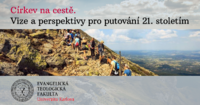 The symposium named „The Church on the Road: Visions and Perspectives for Journey through the 21st Century“, which took place on 13 April 2021 at the Charles University ETF, commemorated two important Czech practical theologians, Josef Smolík (1922–2009) and Pavel Filipi (1936–2015). The Department of Practical Theology of the ETF UK in cooperation with the Prague Seniorate of the Evangelical Church of Czech Brethren invited their pupils and theologians from abroad and conceived the memory as the development of Smolík's and Filipi's ideas about the church in the current context.
The symposium named „The Church on the Road: Visions and Perspectives for Journey through the 21st Century“, which took place on 13 April 2021 at the Charles University ETF, commemorated two important Czech practical theologians, Josef Smolík (1922–2009) and Pavel Filipi (1936–2015). The Department of Practical Theology of the ETF UK in cooperation with the Prague Seniorate of the Evangelical Church of Czech Brethren invited their pupils and theologians from abroad and conceived the memory as the development of Smolík's and Filipi's ideas about the church in the current context.
The main contribution was made by prof. Alexander Deeg from the Evangelical Theological Faculty in Leipzig. He pointed out that the problem of the church is always a problem of language. He was critical of the subjectification of the Christian message, which occurs when the gospel is reduced to a certain doctrinal and ethical content. Churches often believe that it is enough to transfer this content into new, more attractive forms. In contrast, Deeg stressed the need to understand the gospel as a dynamic process. The task of Christians and churches, following the story of the disciples' journey to Emmaus, is to seek a new conversation about God.
Subsequent contributions highlighted the importance of shared visions for the formation of a congregational community (Scott Hamilton Andrews) and worship services as a pivotal event in which the visions and understandings of the Church are formed (Tabita Landová). Other contributions concerned the activities of professors Josef Smolík and Pavel Filipi in the field of ecumenics, which they both connected with practical theology (Martin Vaňáč), current perspectives of chaplain's service (Ladislav Beneš) and the possibility of using the church as a space for religious education (Ondřej Macek). The last two contributions formed a certain contrast: While one sought inspiration for churches in the field of management (Jiří Bochez), the other in the field of common confession and receiving God's grace in worship (Jana Hofmanová).
The all-day symposium was held online, partly in English with a Czech translation, and attracted the attention of hundred participants. The video recording from the symposium is published on the YouTube channel of ETF UK. All papers will be published in the Theological Reflection journal.
Tabita Landová
Becoming a student for a week
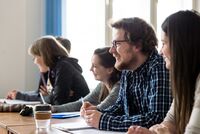 It is no secret that the adverse times of the last year significantly paralyzed Czech education. Universities remain inaccessible to the public for more than a year. For this reason, in addition to full-time teaching, we had to limit all the extra accompanying activities at the Evangelical Theological Faculty. Even such a traditional event (and I dare say even crucial for the presentation of all universities) as „Open Day“ has been moved to a virtual environment in an effort to comply with all epidemiological measures.
It is no secret that the adverse times of the last year significantly paralyzed Czech education. Universities remain inaccessible to the public for more than a year. For this reason, in addition to full-time teaching, we had to limit all the extra accompanying activities at the Evangelical Theological Faculty. Even such a traditional event (and I dare say even crucial for the presentation of all universities) as „Open Day“ has been moved to a virtual environment in an effort to comply with all epidemiological measures.
We were therefore facing the question of how our faculty could present its educational activities in this situation. And so, the event called „Becoming a student for a week“ was born spontaneously. As the name suggests, we opened the imaginary gates of distance learning for a week, and those interested in studying at our faculty had the opportunity to try (in the online mode, of course) all the joys and sorrows of full-time study first-hand.
As a result, more than 50 applicants showed interest in selected subjects of all departments and fields of study that our faculty offers – i.e., theological study programs, social and pastoral work and diaconics. For example, introductory courses in the study of the Old and New Testaments aroused an above-average response and the number of visitors of the lecture on the last Thursday morning of February exceeded all our expectations. The opportunity to draw new knowledge from the interpretation of our researchers, to engage in an academic discussion or just to peek into a virtual classroom, consisting of views of our colleagues' rooms, is probably a tempting opportunity. And we ourselves were able to fully test the possibilities and limitations of the video conferencing platforms as well as our capabilities.
Although we hope that in the coming semester, we will have the chance to return in full force to the faculty building in Černá Street, we are ready to give applicants the opportunity to get an idea of the everyday life of a student of the Evangelical Theological Faculty. And we firmly hope that some of them will find their way to join us in the future.
Matěj Bouček
Biblical colloquium in the form of a videoconference
 The international meeting of biblical scholars, which grew out of household seminars in the 1980s and has been held at the ETF for almost thirty years every week after Easter, had to be postponed due to a pandemic last year. This year's meeting – XXVIII. colloquium biblicum (7–8 April 2021) – has been adapted to be held as a videoconference; the program was shortened to one and a half days. This time, the contributions focused on biblical sections and non-biblical materials, which dealt with the figure of the prophet Elijah in its various roles and meanings. The colloquium was attended by over thirty academics, students and pastors from the Czech Republic, Germany, the Netherlands, Switzerland, and Slovakia. Although videoconferencing is not exactly ideal for seminar conferences and dynamic discussions, this time the meeting was a success – and was very intense and beneficial.
The international meeting of biblical scholars, which grew out of household seminars in the 1980s and has been held at the ETF for almost thirty years every week after Easter, had to be postponed due to a pandemic last year. This year's meeting – XXVIII. colloquium biblicum (7–8 April 2021) – has been adapted to be held as a videoconference; the program was shortened to one and a half days. This time, the contributions focused on biblical sections and non-biblical materials, which dealt with the figure of the prophet Elijah in its various roles and meanings. The colloquium was attended by over thirty academics, students and pastors from the Czech Republic, Germany, the Netherlands, Switzerland, and Slovakia. Although videoconferencing is not exactly ideal for seminar conferences and dynamic discussions, this time the meeting was a success – and was very intense and beneficial.
Martin Prudký
